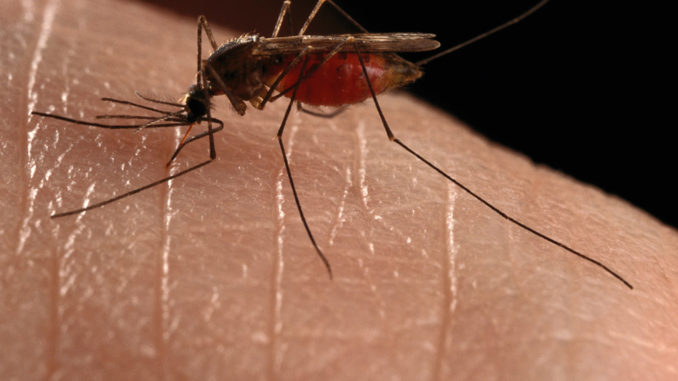
Each summer, hordes of mosquitoes descend on backyards, parks and playgrounds.
While most mosquitoes are merely nuisances, some can transmit serious diseases such as encephalitis in humans and heartworm disease in dogs.
Steve Pavlovich, who serves as the enthomologist with mosquito control, says that the parish is consistently monitoring mosquito populations and testing captured insects for any diseases.
“There are as many as 67 species of mosquitoes in the state of Louisiana,” said Pavlovich. “And of that 67, we are concerned with approximately 15 to 18 species in the parish that have the potential to transmit diseases to humans.”
Because they are bordered mostly by swamp and marsh habitats, towns located on the West Bank of the parish register higher numbers of mosquitoes than the East Bank.
“All areas of the parish are experiencing mosquito activity, but we’re seeing increasing numbers in Willowdale, Boutte and Mimosa Park,” Pavlovich said. “Those areas are being monitored closely and are receiving additional spraying to combat the problem.”
On average, mosquito control trucks spray each town once a week with Biomist – a product designed to knock down mosquitoes rapidly.
“Biomist contains a synthetic pyrethroid that is safe for humans, but can help lessen the mosquito population,” added Pavlovich. “But residents need to keep in mind that this product only kills mosquitoes in the area at the time it is sprayed and does not prevent other mosquitoes from arriving the next day.”
Although there have been no cases of encephalitis in the parish this year, Pavlovich points out that workers are prepared to treat any areas that test positive for the disease.
“We regularly send samples from our traps to the state lab to get tested,” he said. “If we do get a confirmed case of encephalitis, then we will give extra attention to the area where the trap came from.
“If a sample does test positive, then normally we will spray the area three evenings in a row.”
Pavlovich says that the emergence of mosquitoes this time of year is at average levels, mentioning that some parish towns are even below average for mosquito activity.
“After the spring showers, we always tend to see an increase in mosquito populations parishwide this time of year,” he said. “And we’ll continue to see increases based on rainfall and high temperatures.”
To protect yourself and your home from mosquitoes, Pavlovich says its important to get rid of standing water.
“Adult flying mosquitoes often rest in tall grass and shrubbery, but they cannot develop there,” he continued. “All mosquitoes need water to complete their life cycle. Some mosquitoes lay their eggs in standing water where they hatch in just a day or two. Other mosquitoes may lay their eggs in old tires, tin cans, or other water-holding containers.”
Other helpful tips are:
•Get rid of old tires, tin cans, buckets, drums, bottles, or any water-holding containers.
•Fill in or drain any low places (puddles, ruts) in your yard.
•Keep drains, ditches and culverts clean of weeds and trash so water will drain properly.
•Cover trash containers to keep out rain water.
•Repair leaky pipes and outdoor faucets.
•Empty plastic wading pools at least once a week and store it indoors when not in use.
•Make sure your backyard pool is properly cared for while you are on vacation.
•Fill in tree rot holes and hollow stumps that hold water with sand or concrete.
•Change the water in birdbaths and plant pots or drip trays at least once a week.
•Keep grass cut short and shrubbery well trimmed around the house so adult mosquitoes will not hide there.
To report a mosquito problem in your area, call 985-783-2417.




Be the first to comment